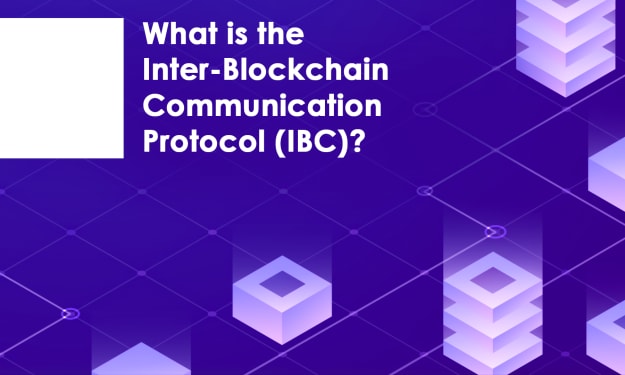Navigating Society's Perceptions of Same-Sex Relationships
Challenging Stereotypes and Fostering Acceptance
In recent years, significant strides have been made in the recognition and acceptance of same-sex relationships. However, society's perceptions of homo relationships remain a topic of discussion and exploration. This article delves into the prevailing thoughts, stereotypes, and evolving dynamics surrounding same-sex relationships, highlighting the progress made and the challenges that still exist.
Historical and Cultural Context:
Society's thoughts on homo relationships are influenced by historical and cultural factors. Throughout history, diverse cultures have held varying views on same-sex relationships, ranging from acceptance to condemnation. Cultural norms and religious beliefs continue to shape societal attitudes towards homosexuality.

Progress and Shifting Perspectives:
In recent decades, there has been a gradual shift in societal attitudes towards homo relationships. Advocacy movements, increased visibility, and legal milestones have contributed to greater acceptance and understanding. However, the pace of change varies across different regions and communities.
Stereotypes and Misconceptions:
Society's thoughts on same-sex relationships can be influenced by stereotypes and misconceptions. Misunderstandings about gender roles, stereotypes about sexual behavior, and misconceptions about parenting capabilities may impact societal perceptions. Challenging these stereotypes is crucial for fostering a more inclusive and accurate understanding of homo relationships.

Legal Recognition and Equality:
The legal recognition of same-sex relationships has had a significant impact on societal perceptions. The fight for marriage equality and the extension of legal rights to same-sex couples have played a vital role in shifting attitudes and challenging discriminatory practices. However, legal progress does not always align with societal acceptance.
Family and Parenting:
The perception of same-sex relationships within the context of family and parenting continues to evolve. Research consistently shows that children raised by same-sex couples fare just as well as those raised by opposite-sex couples. However, societal biases and misconceptions can still lead to challenges and discrimination faced by same-sex parents.

Intersectionality and Inclusivity:
Understanding society's thoughts on homo relationships requires recognizing the intersectionality of identities and experiences. Same-sex relationships exist within diverse communities that encompass a range of sexual orientations, gender identities, and cultural backgrounds. Embracing intersectionality and promoting inclusivity are crucial for fostering understanding and acceptance.
Impact of Media Representation:
Media representation plays a crucial role in shaping society's thoughts on homo relationships. Positive and authentic portrayals of same-sex relationships in popular media can help challenge stereotypes and promote acceptance. However, it is important to avoid tokenism or superficial representation, and instead strive for diverse and authentic storytelling.

Education and Awareness:
Education and awareness play a vital role in challenging societal perceptions. Comprehensive sex education programs that include discussions about sexual orientation and same-sex relationships can help dispel stereotypes and foster empathy and understanding. Increasing awareness through dialogue and open conversations can break down barriers and promote acceptance.
Community Support and Advocacy:
Community support and advocacy organizations are instrumental in challenging societal perceptions and providing a support system for individuals in same-sex relationships. These groups work tirelessly to create safe spaces, offer resources, and advocate for equal rights. Their efforts contribute to changing societal attitudes and fostering acceptance.

The Journey Ahead:
While significant progress has been made in challenging stereotypes and fostering acceptance of same-sex relationships, there is still work to be done. Continued advocacy, education, and open dialogue are vital in dismantling prejudices and creating a more inclusive society that embraces the diverse experiences of all individuals, regardless of their sexual orientation.
Conclusion:
Society's thoughts on homo relationships are influenced by a range of factors, including cultural, historical, and individual perspectives. While progress has been made in challenging stereotypes and fostering acceptance, there is still a need for continued efforts to dismantle biases and promote inclusivity. By recognizing the historical and cultural context, challenging stereotypes and misconceptions, and emphasizing the importance of legal recognition and equality, society can continue to evolve towards a more accepting and understanding attitude.
Media representation, education, and community support play crucial roles in shaping societal perceptions. Positive and authentic portrayals of same-sex relationships in the media can help break down stereotypes and promote acceptance. Comprehensive sex education programs that include discussions about sexual orientation and same-sex relationships can foster understanding and empathy from an early age.

Community support and advocacy organizations are instrumental in providing resources, creating safe spaces, and advocating for equal rights. Their ongoing efforts contribute to changing societal attitudes and fostering acceptance.
The journey towards a more inclusive society is ongoing. It requires continued dialogue, education, and open-mindedness. By embracing diversity and recognizing the importance of love and connection in all its forms, society can create an environment where homo relationships are celebrated and respected.
Ultimately, society's thoughts on homo relationships should reflect a shift towards inclusivity, empathy, and acceptance. It is through collective efforts that we can create a world where all individuals, regardless of their sexual orientation, can experience love, support, and respect in their relationships.
About the Creator
Gokul Nath
Hi, my name is Gokulnath Jeyaraj.
I am a weaver of words, a conjurer of dreams, a poet. My work is characterized by wonder, curiosity, and deep empathy for the human experience.
Enjoyed the story? Support the Creator.
Subscribe for free to receive all their stories in your feed. You could also pledge your support or give them a one-off tip, letting them know you appreciate their work.







Comments
There are no comments for this story
Be the first to respond and start the conversation.